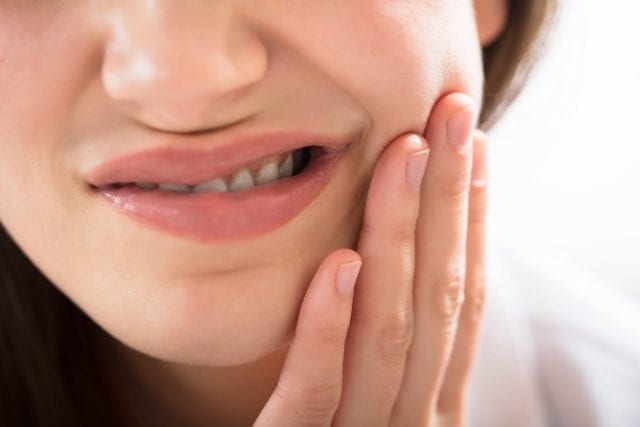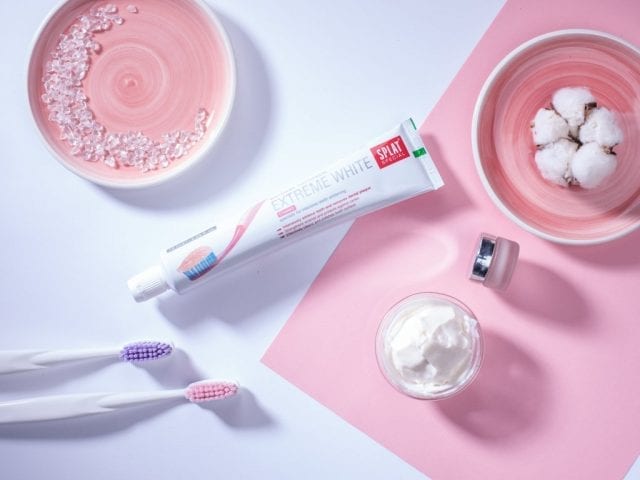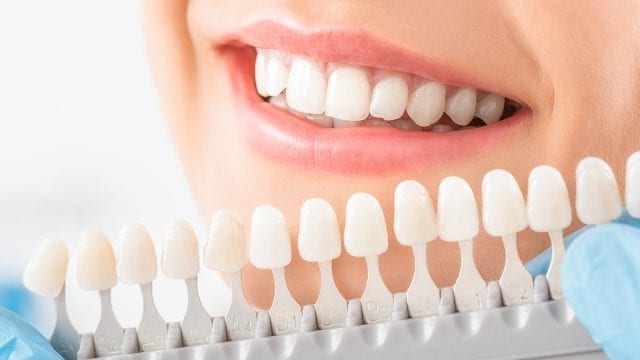
Tooth whitening is one of the most popular dental procedures, and with good reason. Whether you choose to get your Pearly whites brightened at a dental office or you decide to do it yourself at home, it will restore the beauty of your smile. Tooth whitening is also very straightforward and quick. But as with all dental and medical procedures, before you start the treatment you should know what to expect. It also helps to know in advance how to deal with any problems like tooth sensitivity after the treatment.
How Tooth Whitening Treatments Work
Whether you choose to have a tooth whitening treatment at the dentist’s office or use a whitening kit at home, the essential process is very similar. A gel or solution containing peroxide is applied to the teeth for short periods of time, about 15 to 20 minutes. The gums are protected by a rubber dam. Sometimes more than one treatment may be required.

The concentration of peroxide in the whitening gel or solution determines the number of treatments and the amount of time needed. It also determines the level of whiteness that can be achieved.
Why Tooth Sensitivity Occurs After Whitening
Whether the tooth whitening treatment is done at a dentist’s office or at home, many people will experience some sensitivity afterwards. This is because peroxide, which is one of the ingredients of most tooth whitening gels and solutions, is known to cause sensitivity. To understand why tooth sensitivity occurs after whitening, you need to know something of the structure of your teeth.
The outer layer of the tooth is hard, but inside there is a soft layer called dentin. Bleaching molecules from the tooth whitening gel or solution can penetrate through to this layer, causing sensitivity and discomfort. In some cases, this discomfort can persist for up to two weeks However, there are some steps you can take to prevent the discomfort, before, during and after the treatment.

How You Can Prevent Tooth Sensitivity After Whitening
There are several ways in which you can reduce or prevent tooth sensitivity after a whitening treatment. You can start preparing two weeks in advance, and also make sure you have desensitizing gels and painkiller medications at hand to use just before and after the procedure.
1. Prepare by brushing with special toothpaste
You can prepare for your tooth whitening treatment by brushing your teeth with a special toothpaste formulated for sensitive teeth, two weeks before the procedure. This helps because the special desensitizing toothpaste has potassium nitrate as one of its ingredients. The potassium nitrate blocks the nerves in the tooth to prevent the sensation of pain. For the gums, you can dab a little Vitamin E oil along the gum line to prevent sensitivity.
2. Reduce the amount of whitening product used
If you’re whitening your teeth at home, you can reduce the amount of gel used if you experience discomfort. You can also space out the intervals between each treatment and wait a few days before using the whitening gel again. If you’re getting the treatment in a dental office, you should let them know if you experience any sensitivity. The concentration of peroxide in the whitening gel can be reduced, and that will also reduce or prevent any sensitivity.

3. Give your teeth a rest between treatments
Increase the interval between treatments by skipping a day or two, to give your teeth a chance to recover. You can also reduce the amount of time that you keep the tooth whitening trays on your teeth. You should avoid the temptation to repeat treatments frequently.
4. Avoid hot and cold foods after whitening
Some kinds of foods cause tooth sensitivity and should be avoided after a tooth whitening treatment. These include hot and cold food and drinks, carbonated drinks and acidic foods.
5. Use a soft tooth brush
To avoid discomfort, you should use a soft toothbrush after a tooth whitening treatment. Lukewarm water will also help to reduce any sensations of discomfort. Fluoride rinses after treatment can also help to reduce sensitivity.

6. Take pain medication before the treatment
Taking an anti-inflammatory painkiller medication like ibuprofen half an hour before beginning the treatment can help to prevent pain and discomfort. However, the effects of this medication will wear off after a couple of hours and you will have to take another dose. You could also apply a desensitizing gel or paste to your teeth ten to thirty minutes beforehand.
7. Use desensitizing products after the treatment
Desensitizing gel or paste can be applied to the teeth after treatment as well. These will close the pores that expose the sensitive inner layer of the tooth. These products can also add minerals to your teeth that will enhance the effects of the tooth whitening process.

Tooth whitening is a simple and non-invasive dental procedure that can restore your teeth to their original pearly white state. It can be followed by tooth sensitivity, but there are several things you can do to prevent any discomfort from the treatment.








